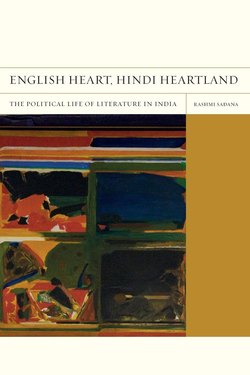Читать книгу English Heart, Hindi Heartland - Rashmi Sadana - Страница 11
На сайте Литреса книга снята с продажи.
ОглавлениеCHAPTER 3
In Sujan Singh Park
In 1967 Nirad Chaudhuri issued a characteristically dire pronouncement on the place of Indian writers in the world. “It is essential,” he wrote, “from every point of view to secure the imprint of a London or New York publisher, and the higher the status of even these publishers the better for the writer.”1 For Indian writers of English, Chaudhuri seems to be saying, the only path to literary recognition is through the publishing apparatus of the Western world. Further along he continues in a slightly more ominous vein: “But one warning I must give. To be acceptable to Western publishers, an Indian must write English not only with competence, but with distinction. The competition with the natural writers of English is so severe that British and American publishers will not submit to the impact of any English from an Indian writer which is not quite out of the ordinary.”2
In Chaudhuri's mind, and in the minds of many of his generation and class, the intellectual center of the English-speaking world could only ever be located in the West. And, by implication, the traffic in ideas could only ever be directed by the demands of London-based publishers, the “natural” speakers of the English language. It was they who would judge literary merit and disperse literary capital accordingly. And in the evaluation of the literary, there would be a measurement of linguistic competence. In Chaudhuri's passive, double-negative construction regarding publishers not willing to submit to “the impact of English that is not quite out of the ordinary,” it is almost as if the Indians have the upper hand, wielding their wanton prose through the streets of London. Chaudhuri's advice to other writers details a classic center-periphery dynamic: how to turn the colonizer's gaze to one's own advantage, to “write back” and get published. And yet if postcolonial writing was meant to be about the reappropriation of the colonizer's language, would not the place of publication also have to be refigured?
The last chapter detailed how English mediated the linguistic realms of Hindi and Urdu, emphasizing key shifts from the colonial to postcolonial periods. This chapter argues for English as mediator in the realm of elite intellectual life, specifically in the decades after independence. It is a story of a particular upper-caste background and upper-middle-class sensibility, one in which secular and liberal values become defined and associated with cultural production in English. It is a set of values that I identify as emerging from a dual sense and experience of one's own place in society. From the 1970s onward Delhi was the major hub of this intellectual life, largely because the academic and then literary publishing outfits in English moved there and, along with other institutions, became the center for the exchange of ideas in English, ideas that would ultimately inform the larger multilingual intellectual and literary spheres in the city and beyond.
POSTCOLONIAL PUBLISHING
